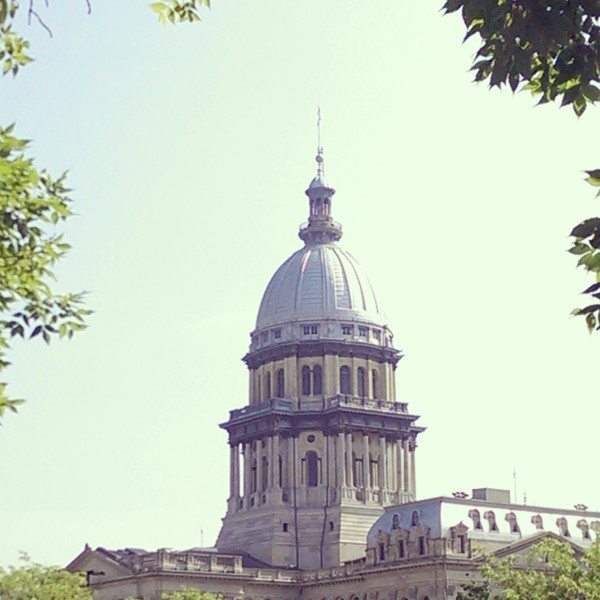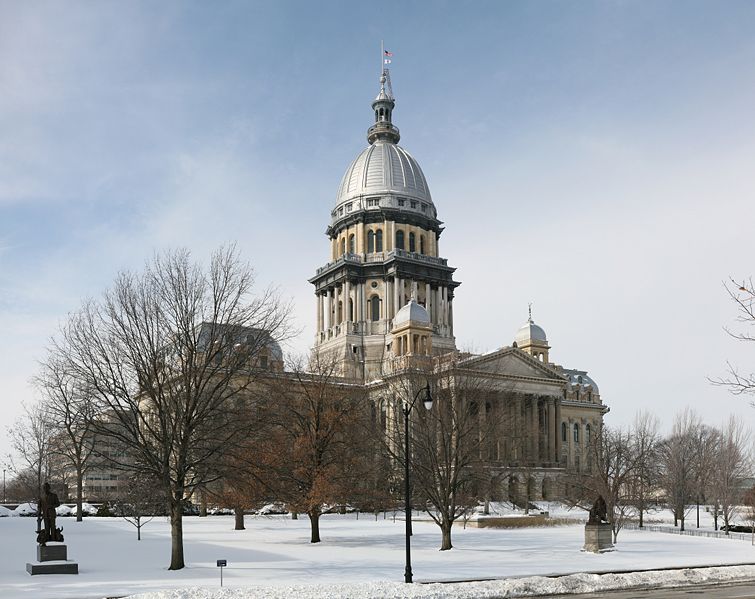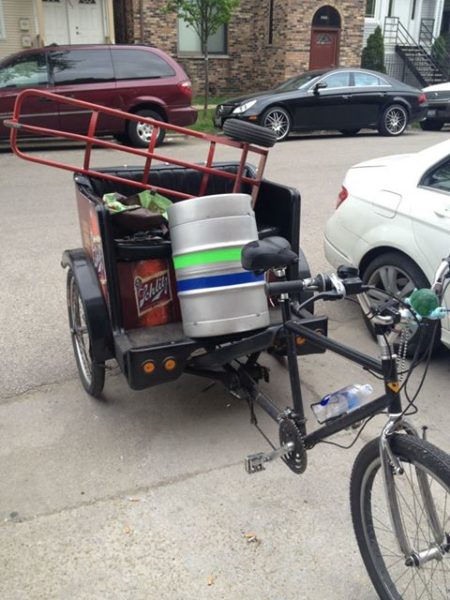The Illinois House Tuesday approved a bill rewriting the state’s craft brewer act, giving big brewers more room to grow and allowing small brewers to make their way into the market.
 The Illinois House, which ran out of time at the end of session to pass a major rewrite of the state’s craft brewer act, passed the bill through committee and out of the full House in short order Tuesday.
The Illinois House, which ran out of time at the end of session to pass a major rewrite of the state’s craft brewer act, passed the bill through committee and out of the full House in short order Tuesday.
The bill now awaits the governor’s signature.
As a refresher, here is what the legislation does:
- The bill creates two craft brewer licenses: Class 1 and Class 2.
- A Class 1 Brewer could produce up to 30,000 barrels of beer a year and self-distribute up to 7,500 barrels of beer a year. They could not hold a brewpub license though.
- A Class 2 Brewer could produce up to 120,000 barrels of beer a year and hold up to three brewpub licenses, however they could not self-distribute.
- Production is capped at brewpubs in Illinois at 5,000 barrels of beer per year, per location. If a Class 2 Brewer has multiple brewpubs the beer produced there does count towards their 120,000 barrel cap. Also, a Class 2 Brewer could only offer beer for on-premise consumption at three locations, which would appear to keep a brewer from having a taproom and three brewpubs,
- The fee for a Class 1 license remains $25. The fee for a Class 2 license is $25.
- Revolution Brewing could continue with its planned expansion and retain its flagship brewpub as the bill would allow Rev Brew to be grandfathered in.
Both sides — the Associated Beer Distributors of Illinois and Illinois Craft Brewers Guild — got something they wanted out of the bill.
The ABDI has long been bugged by the fact that a small craft brewer can own and operate both a production brewery and brewpub effectively operating in two of the three tiers of the three-tier system. Former ABDI President Bill Olson told me, prior to retiring in 2013, he only agreed to that provision of the original craft brewer act because he thought Josh Deth at Revolution Brewing was going to shed the brewpub after the law was passed.
Their [Revolution’s] argument was, “we need time to transition from our brewpub to our production brewery” and gave us every indication that when they made that transition they were going to get rid of the brewpub. So we put in there that a craft brewer, which then was defined as the 15,000 barrels, could continue to hold a license for a brewpub. We probably were remiss in not saying that there is a timeframe. We probably should have put in there, they can only hold it for two years, or a year, or something. But we were trying to make an accommodation to help this one brewpub up there.
Once it got on the books we found out they didn’t want to get rid of their brewpub. They had no intention of stopping being in two licensed levels of the three-tier system.
I followed up with Deth who told me that was never in the cards.
“The brewpub is the home base of Revolution and will always be if we are around,” said Deth. “We bought that building and gut rehabbed it so we could be around for a long time.”
So the ABDI gets the small brewers out of two of the three tiers.
The ICBG gains a victory in that big brewers can have those brewpubs and have more than one. That’s a big deal.
Sure, back in 2011 self-distribution was a big deal and still is, but allowing the likes of Destihl to open up another brewpub somewhere perhaps not in central Illinois or others to expand is huge for craft beer’s future growth in Illinois.
Small brewers still retain what they fought for in 2011 too, which is a bonus.
Even without hard stats to fall back on I feel confident in saying the self-distribution model in Illinois works. An easy “Exhibit A” is Begyle Brewing who recently inked a distribution deal with Glunz. They began by biking their beer to nearby retailers, using this guy:
And have since expanded — a lot — to barrel-aging, opening a tap room and overtaking the second floor of their space. They grew their brand and portfolio and now they need a distributor to do the heavy lifting. All of these are good things.
Both the ABDI and ICBG said before this legislative session they wanted to work together to put some real reforms in place that would prevent each side from using a patchwork approach to fixing certain parts of the law. On its face, they’ve accomplished that. More importantly is they actually did it and they did it together.
It seems the days of distributors and brewers going to-toe-to in Illinois may be past us. ICBG President John Barley predicted as much in a September, 2014 chat with Karl.
[T]he new leadership who’s taken over at ABDI…it’s been a completely different ballgame. It’s no secret that we didn’t have the best relationship with them for a long time, most of that predates me by a longshot. But you know, their new leadership over there is very much willing to…we had a sitdown, having meetings, that sort of things. As simple as an idea as that sounds, it’s unprecedented for us as an organization.
Sure, they’re not going to agree on everything, but the two sides working together on something this significant has to be a sign of good things to come.

